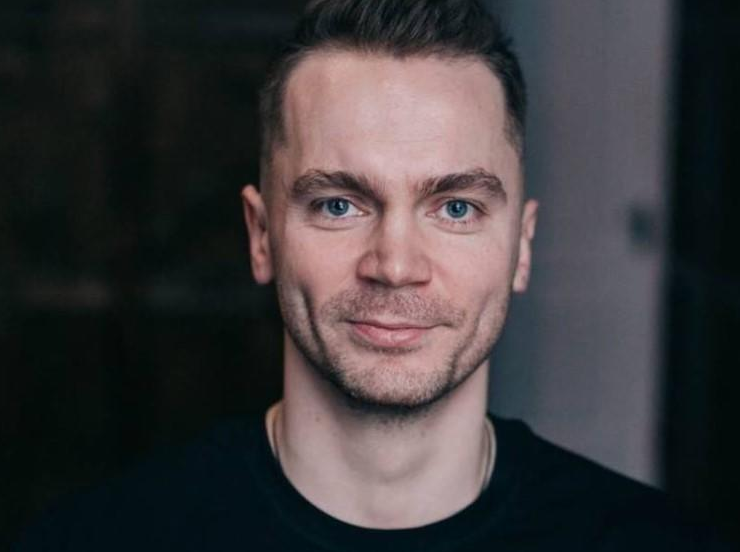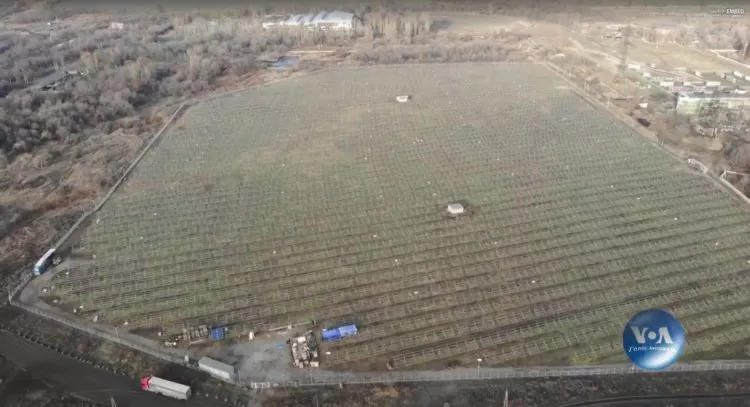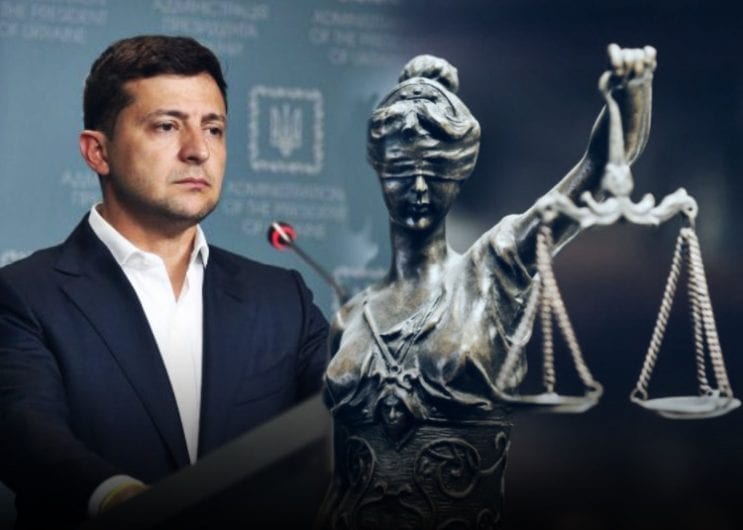Euromaidan Press spoke to Mykhailo Zhernakov, head of the board at the DEJURE Foundation, the main watchdog analyzing judiciary reform in Ukraine, to find out details and possible consequences of current presidential decisions.
What are the problems?
In short, the most acute are three problems related to Ukraine’s judiciary:
- Corrupt institutions that are responsible for the appointment of judges and continue appointing judges with dubious reputations;
- Attempts by the president to control the judiciary. In particular, Zelenskyy’s links with the Kyiv District Administrative Court (OASK) to prevent the election of anti-corruption prosecutor chief;
- The unreformed Constitutional Court, which lacks a transparent and competitive procedure of appointment, and the president’s attempts to control this court.
Some progress expected with the creation of the Ethical Council
There is some progress only regarding the first problem.
The judiciary reform in Ukraine started in 2017 with the creation of two new institutions, the HQCJ and HCJ. The High Qualification Commission of Judges (HQCJ) selects and conducts qualification assessments of judges, recommending them for appointment. The High Council of Justice (HCJ) makes final decisions on the appointment, punishment, or dismissal of a judge. The reform did not succeed because a majority of HCJ members had links with the old judiciary system and continued appointing corrupt judges.
In 2021, Ukraine’s parliament voted to create an Ethical Council. It should involve independent international experts and conduct a new selection of HCJ members, to reform the system from above. The Ethical Council was successfully created in December 2021 and has started its work.
The Council announced that no later than 8 February 2022, they will begin checking on compliance of existing HCJ members. For now, they are checking and approving (or not approving) these candidates for interviews with the High Council of Justice.
President effectively maintaining personal control over the judiciary
There is no progress in preventing presidential control over the judiciary, namely the Kyiv District Administrative Court (OASK).
Already at the beginning of 2021, Zelenskyy registered his “urgent” draft law to close the OASK. The scandal-ridden court was responsible for considering lawsuits against state institutions in Kyiv and was many times used as a tool for political leverage. However, Zelenskyy’s party still failed to consider the law in parliament. Meanwhile, OASK invalidated the selection of anti-corruption prosecutor chief in December 2021, despite it being one of the IMF’s key demands.
Ukraine’s anti-corruption prosecutor selection now invalidated by scandalous court

Mykhailo Zhernakov claims this situation clearly demonstrates the president is interested in maintaining OASK and invalidating the work carried out by the anti-corruption bodies by the hands of this court for two reasons.
- First of all, because an independent Anti-Corruption Prosecutor’s Office (SAPO) would mean investigations and cases against the President’s close circle.
- Secondly, the deputy head of Zelenskyy’s office Oleh Tatarov was involved in corruption scandals and supported the assault on Euromaidan protesters in 2014.
Zhernakov says there are two options for Zelenskyy’s involvement in the contest’s disruption:
- either Zelenskyy’s minions — Yermak and Tatarov — are acting independently, setting the president up, and must be fired immediately;
- or they are playing a game with Zelenskyy and he is pretending that he is eagerly waiting for the results, which are contingent on “independent” commission members he cannot influence.
So far neither Yermak nor Tatarov have been fired, despite Zelenskyy’s statements that he condemns the OASK decision and wants an independent anti-corruption prosecutor office (SAP).
The Constitutional Court remains the biggest problem
In October 2020, behind closed doors and away from the public eye, Ukraine’s Constitutional Court declared one of Ukraine’s key anti-corruption achievements, the online register of assets that top officials were obliged to reveal, aka the e-declaration system, unconstitutional.
Access to the register was soon renewed by the order of the Cabinet. However, the decision itself marked a constitutional crisis in Ukraine, for the Cabinet openly disregarded the decision of the court.
Head of the Constitutional Court Oleksandr Tupytskyi was appointed in 2013 by Ukraine’s runaway president Viktor Yanukovych and is suspected of links with Moscow. Not surprisingly, he advocated for such a decision of the court.
At the same time, despite all criticism addressed to the court, it is the highest judicial body in Ukraine concerning political disputes and its judges cannot be fired until their nine-year term ends.
Immediately after the onset of the crisis, Zelensky asked the Venice Commission for advice on how to get out of it.
“And the Venice Commission answered unambiguously that the only way out of these troubles is to stop the political way of appointing constitutional judges. It is necessary to make a competitive selection for the position of judges of the Constitutional Court with a single commission, which will include representatives of independent international experts and civil society. Until there is no such procedure, do not make any appointments of new judges, so that new ones are selected already under the new procedure,” Mykhailo Zhernakov explains.
In fact, Zelenskyy not only did not follow this recommendation to reform the Constitutional Court, although 15 months have already passed; he also tried to fire two judges and appoint new ones from his circle, in violation of Constitutional Court immunity.
Thus, he only deepened the crisis.
“Zelensky appoints through the parliament [as a constitutional judge] Mr. Kichun, who was an adviser to Zelenskyy’s representative in the Constitutional Court. The selection procedure was a complete sham, the commission didn’t even check compliance with the formal requirements of the law. Then, the removal of constitutional judges Tupytskyi and Kasminin by presidential decree followed, which is completely illegal. And in their places Zelenskyy ‘appoints’ two more judges, Petryshyn and Hryshchuk. If they were appointed, it would have delegitimized the Constitutional Court for 9 years. Fortunately, the Constitutional Court refused to appoint these judges and postponed their appointment for a year, until Tupytskyi’s and Kasminin’s terms would really end,” Zhernakov explains further.
According to the law, neither parliament nor the president can dismiss Constitutional Court judges once they have been appointed. However, such an attempt by the president is not a surprise, given his attempts to influence anti-corruption bodies through the Kyiv District Administrative Court (OASK), failure to dismiss this court, as well as failure to launch a reform of the Constitutional Court.
“We see a striking difference between the attitude of foreign independent experts to the appointment of officials and the attitude of members of the commissions associated with Ukrainian politicians. This recipe has worked both in the selection of judges to the anti-corruption court and in the competition for positions at the national anti-corruption bureau (NABU), and so far we have nothing better. Another recommendation is to involve civil society, but it seems the president’s office sees no stronger enemy than civil society. Civil society is not involved anywhere.
Despite progress in the reform of the HCJ through the creation of an ethical council, the constitutional court is in big trouble. Now the legality of the anti-corruption court, medical reform, lustration are under the consideration of the constitutional court, along with many more reforms. And all this is still under threat. For 15 months since the constitutional crisis, neither the president nor the parliament has introduced bills to reform the constitutional court,” Zhernakov summarizes.
Earlier, we reported that Ukrainian businesses, as well as foreign investors, see judiciary reform in Ukraine as the first priority, with corrupt judiciary remaining the main source for oligarchic power in Ukraine.

Only recently, on 27 December 2021 Canadian investor TIU Canada announced it was withdrawing investment and dismantling its solar power plant in Nikopol because after two years of illegal cuts from electricity networks it could not defend its interests in the courts. It was unsuccessful in suing the Nikopol alloy factory which belongs to Ukrainian oligarch Ihor Kolomoyskyi, also accused of corruption and money laundering in the USA.
The case is notable because once Zelenskyy personally promised his guarantees to TIU Canada during a conference in Ottawa. There are many other similar but smaller cases.




